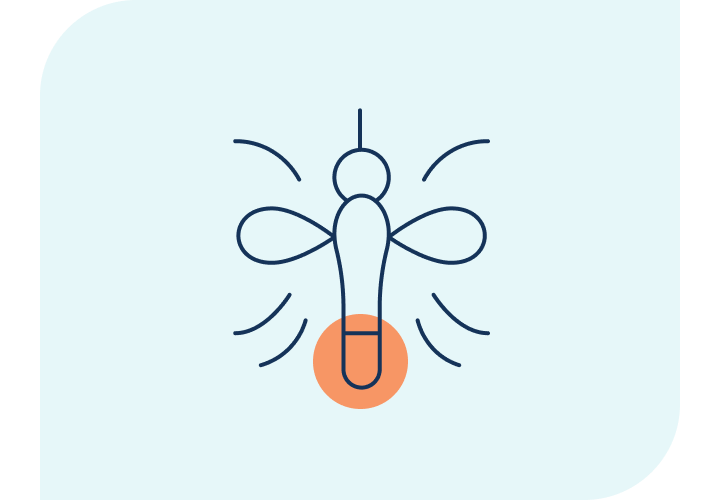Talking Points
What is Dengue?
- Dengue virus (DENV) is a common virus spread by the bite of infected Aedes mosquitoes. Countries in North and South America reported more dengue cases in 2024 than in any other year on record, and many countries are reporting higher-than-average cases in 2025.
- Most people who become infected do not experience symptoms. However, symptoms can include fever with nausea, vomiting, rash, intense pain behind the eyes, muscle aches, joint pain, bone pain, or headache. Symptoms may begin within two weeks after a mosquito bite and typically resolve within one week.
Dengue Transmission
- How: Dengue is transmitted to humans through bites of infected Aedes mosquitoes. It is not contagious between humans, but can be passed from an infected pregnant person to their baby.
- Transmissions typically peak in many countries during spring and summer, or warmer and wetter months. This peak coincides with the heaviest period of travel to and from the United States and can increase the risk of travel-associated and local cases. As global temperatures increase, there may be increased dengue cases in areas of the U.S. where dengue is not typically present due to travel-associated and local transmissions. There have been dengue cases in Florida, Hawaii, Texas, Arizona, New York, and California over the last two years.
- Where: Dengue outbreaks are frequently reported in popular tourist destinations, including the Caribbean, Central America, South America, and Southeast Asia. Several of these destinations are reporting a higher-than-expected number of dengue cases in 2025. Six U.S. territories and freely associated states are classified as areas with frequent or continuous dengue transmission: Puerto Rico, American Samoa, the U.S. Virgin Islands, the Federated States of Micronesia, the Republic of Marshall Islands, and the Republic of Palau.
- If you live in or travel to areas with frequent or continuous dengue transmission, you are at increased risk of dengue virus and should get tested if you are experiencing symptoms.
Dengue Prevention and Vaccination
- Prevention: If you live in or travel to areas with continuous or frequent dengue transmission, Environmental Protection Agency (EPA)-approved repellents and wearing protective clothing like loose-fitting, long-sleeved shirts and pants can offer protection from mosquitos.
- Vaccination: Currently, vaccination is only recommended for certain children living in areas with high Dengue transmission.
Dengue Treatment
- There is no specific treatment or medicine for dengue. If you have dengue, you can alleviate symptoms through rest, hydration, and acetaminophen to control fever and pain. Do not take ibuprofen (like Advil®) or aspirin. This can increase your risk of internal bleeding complications.
Updated August 15, 2025


